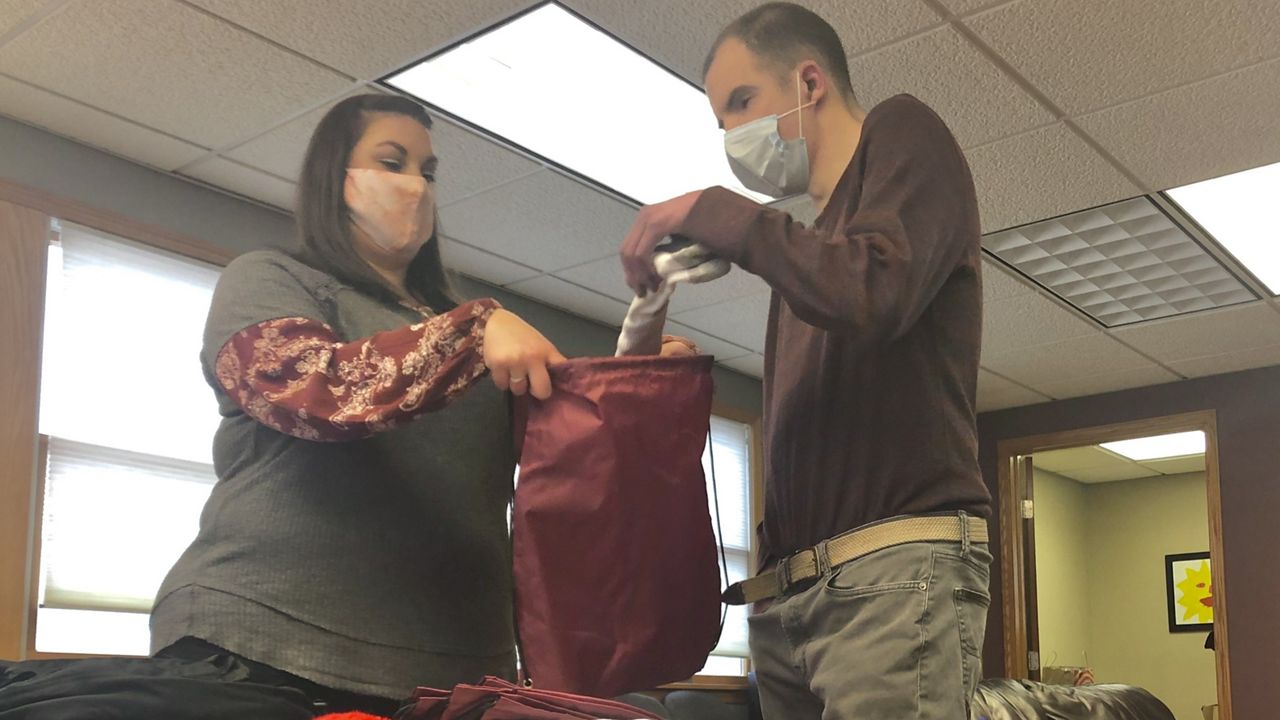Studies show that people who have been to prison are seven times more likely to become homeless. For multiple offenders, the rate can be 13 times higher.
It's a prospect Emmanuel Murray faced until he had the fortune of running into the good Rev. Curtis Levy.
The pair of Syracuse transplants met some years back and now Murray is the director of housing and development for Levy's Last House on the Block Ministries.
"I oversee the day-to-day operations and make sure the program is running," said Murray.
It's a six-month program to help those most in need, something Murray knows about after fighting addiction and leaving his native New Jersey.
"I spent a day on the corner and through the grace of God, Rev. Levy came by, saw me on the corner of my bags, picked me up, took me. He gave me a room and that was four years ago," Murray said.
Making his way through the program was critical, as Last House on the Block serves those who many have written off for one reason or another.
Murray cites his age as having been a major obstacle for others to help, but a determination to find spirituality and purpose leads him to where he is today.
"Not to overdramatize it, but it's been a lifesaver for me. It keeps me clean. It keeps me straight," added Murray. "I want to pass that on to other people. I want other people to know that there's another way out."
There are countless road blocks between formerly incarcerated, those fighting with substance and mental conditions and getting a much needed chance to thrive.
Not everyone who enters the program is a success story like Murray, but they are willing to put in the work.
"I don't have a magic wand. There's no miracle cure. All it is is hard work and discipline," he said.
The ministry is a non-profit that runs five transitional houses, but it doesn't end with a roof, bed and common spaces. There are much-needed meetings and workforce development sessions. Murray doesn't pull punches about the uphill battle these men and women face.
"Have you got a criminal justice history? You have a substance abuse history or you have mental illness? You're at the bottom of the list," he remarked. "As much as they say discrimination, those things and stigmas are illegal to apply? Murder is illegal to and it still happens."
It's hard as a non-profit, but for as much as they do, Last House on the Block is always looking to expand.
"Ideally, we'd like to move forward and get affiliated with some of the bigger health providers where we can add more services," Murray said. "I mean, there's only a certain level of care that we can get."
Murray knows how the kindness and commitment of strangers can change a life and he strives to keep paying it forward.
"In that back room, that one single room, and put me there, and that was enough," Murray reflected. "For me to come up here and be on a corner for 15 minutes and give me a room and a start. And a chance? I'm forever grateful."







